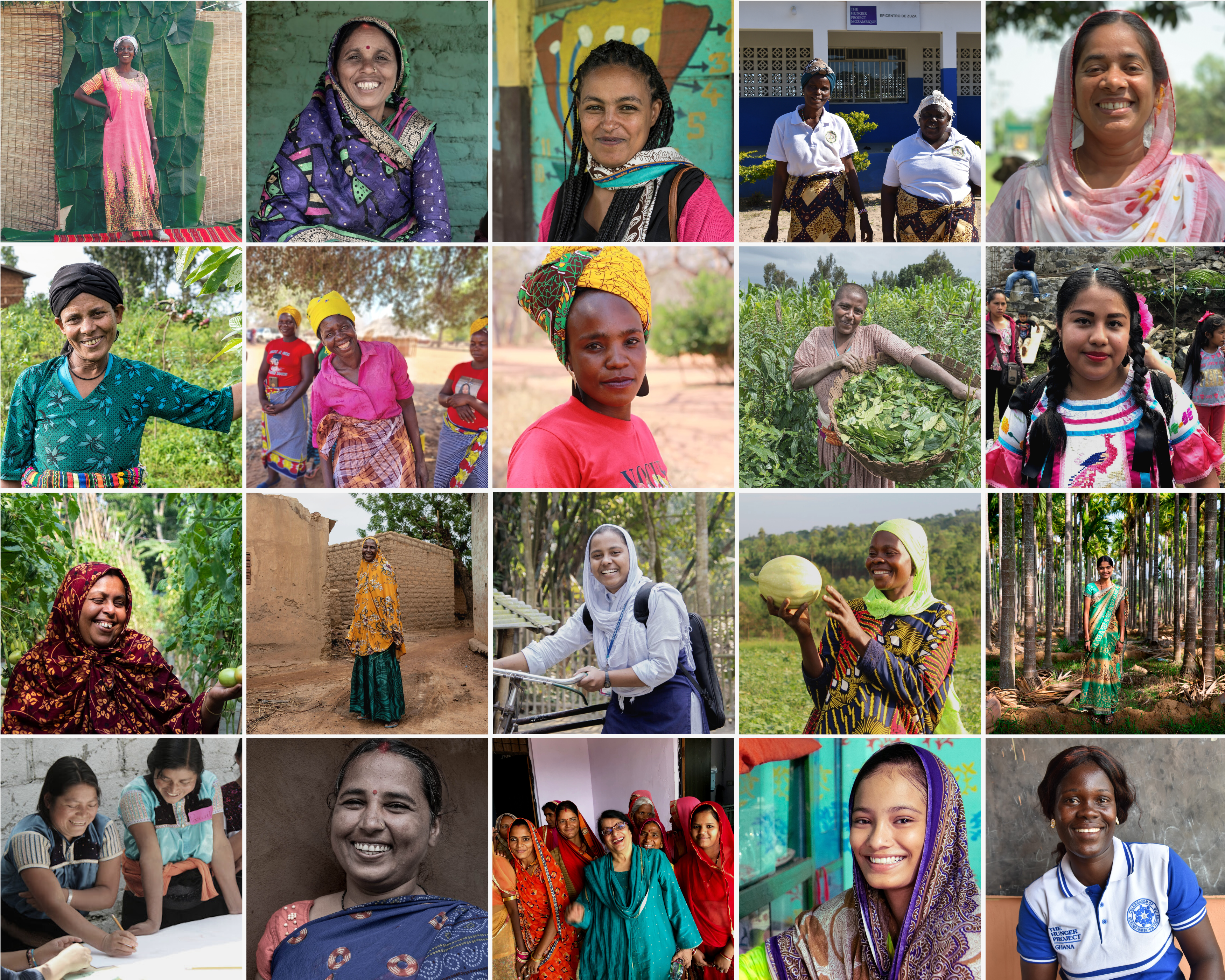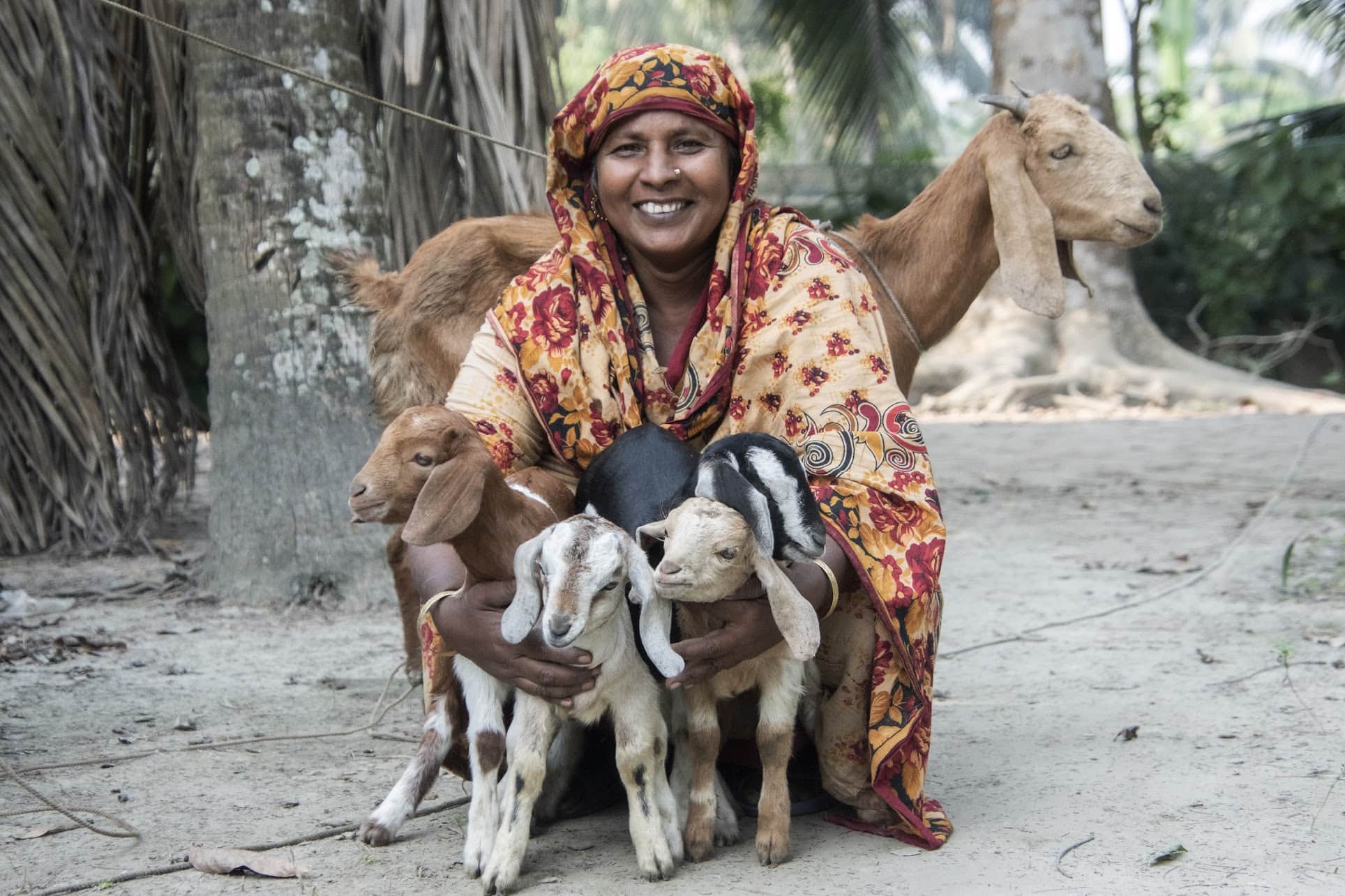This International Women’s Day, we embrace technology and innovation for a better future.
On March 8, 2023 we at The Hunger Project join billions of people worldwide to commemorate International Women’s Day. On this day we reflect on the progress forged by women who have made extraordinary contributions to society. Together, we continue to call for an end to gender discrimination, draw attention to systemic injustice and fight for inclusion in all facets of society.
The theme of this year’s International Women’s Day is ‘DigitALL: Innovation and technology for gender equality’, calling on the global community to strive for equality, especially when it comes to access to technology, with the aim of narrowing what’s called the ‘digital divide’. The theme is aligned with the upcoming 67th Session of the Commission on the Status of Women (CSW-67), ‘Innovation and technological change, and education in the digital age for achieving gender equality and the empowerment of all women and girls.’
Around the world, we’ve seen that a gender-responsive approach to innovation, technology and digital inclusion has a direct impact on hunger and poverty. The Women’s Meaningful Access project in Malawi is expected to connect 70,402 people to the Internet. Including women and other underrepresented groups in technology programs like this leads to more inventive solutions and increases the likelihood of advancing gender equality and addressing the needs of women and marginalized communities.
More about the digital divide.
According to the UN Women’s Gender Snapshot 2022 report, in the last ten years, low- and middle-income nations have lost USD $1 trillion in GDP due to women’s exclusion from the digital world– without action, this loss will increase to USD $1.5 trillion by 2025. During the COVID-19 pandemic, broad, sweeping restrictions made it even more difficult for women and girls to participate in economic systems, governance, social and environmental issues, which has created a parallel epidemic of gender discrimination. Addressing this parallel epidemic does more than improve the lives of women, it has the potential to lift entire countries out of economic turmoil by enhancing access to technology and digital skills for women and girls.
To effect change in systems that have such a wide global reach, we need to embrace radical, gender-responsive, transformative approaches. We need to increase investment in gender-conscious interventions and change legal and policy frameworks at both local and national levels. Without these long-term systems changes that leverage the unique abilities and perspectives of those living in hunger and poverty, the gender inequality gap will continue to widen, leaving women — and our entire planet — in vulnerable positions during future global crises.

More about what we do.
At The Hunger Project, we know that women play a critical role in ending hunger, extreme poverty, malnutrition and the climate crisis around the world. When girls are educated and empowered women hold leadership — formal and informal — in their communities, the world will have a healthier population, an end to child marraiges, and each of us will live in thriving communities.
At Hunger Project epicenters across Africa, Our Women’s Empowerment Programming encourages women to seek positions of leadership and offers training for all of our partners, both women and men, to take responsibility for improving lives in their communities. To improve economic engagement, in Ghana and Malawi we have launched a connectivity project in which women have meaningful access to the Internet. The project was launched in partnership with BLUETOWN, Microsoft and USAID.
In South Asia, our work focuses on strengthening local leaders’ capacities to collaborate with local and national governments. In India, we offer skills workshops for women who have been systematically denied information, freedom of motion and a voice in decision making. We work alongside the women electorate, encouraging voter participation among women and the election of women leaders to all panchayat (village council) seats. In Bangladesh, programs like our Safe School for Girls Campaign work with students, teachers, parents and local communities to stop child marriages and promote opportunities for girls. Since the program’s launch, more than 53,160 people have been trained in Safe School for Girls workshops.
In Mexico, we work with indigenous communities where the highly patriarchal social structure denies women access to vital resources and a platform for their voice. Our programs focus on encouraging women leaders as they advocate for themselves and for the resources that they need — based on their own assessments and desires for their community. Women in these communities have developed an incredible “train the trainer” chain where women who have worked with The Hunger Project are training other women, creating new roles as leaders and providers.
Follow our social channels to learn more about our work with incredible women around the world. Use the hashtag #IWD2023 to share your commitment to gender equality.
Top Image: Women in Bangladesh, 2022. Photo taken for The Hunger Project
Collage Image (Top Left to Bottom Right): Uganda (2019), India (2022), Ethiopia (2019), Mozambique (2022), Bangladesh (2019), Ethiopia (2019), Mozambique (2022), Mozambique (2022), Ethiopia (2019), Mexico (2019), Bangladesh (2022), Burkina Faso (2022), Bangladesh (2021), Uganda (2022), India (2020), Mexico (2019), India (2022), India (2019), Bangladesh (2021), Ghana (2019).

